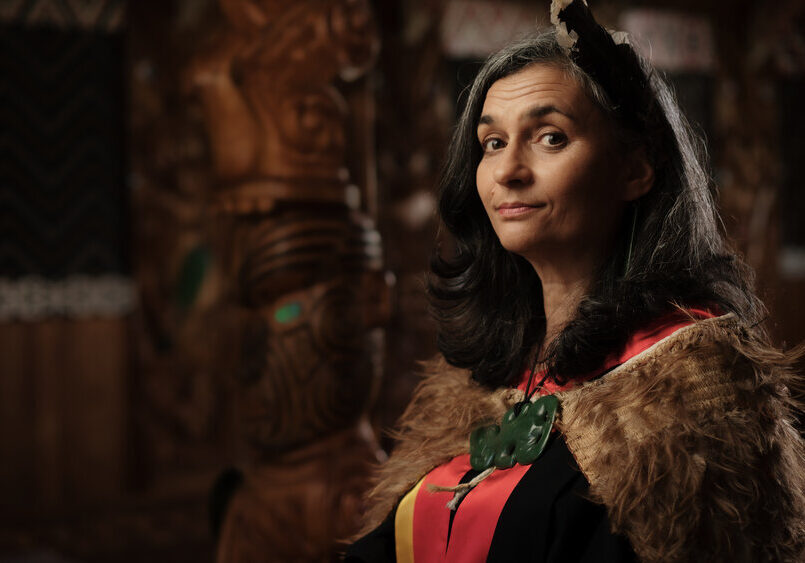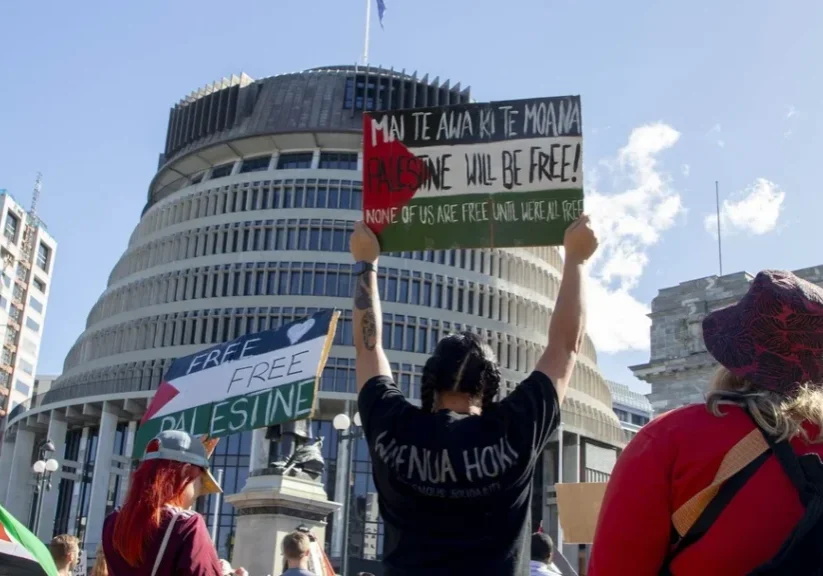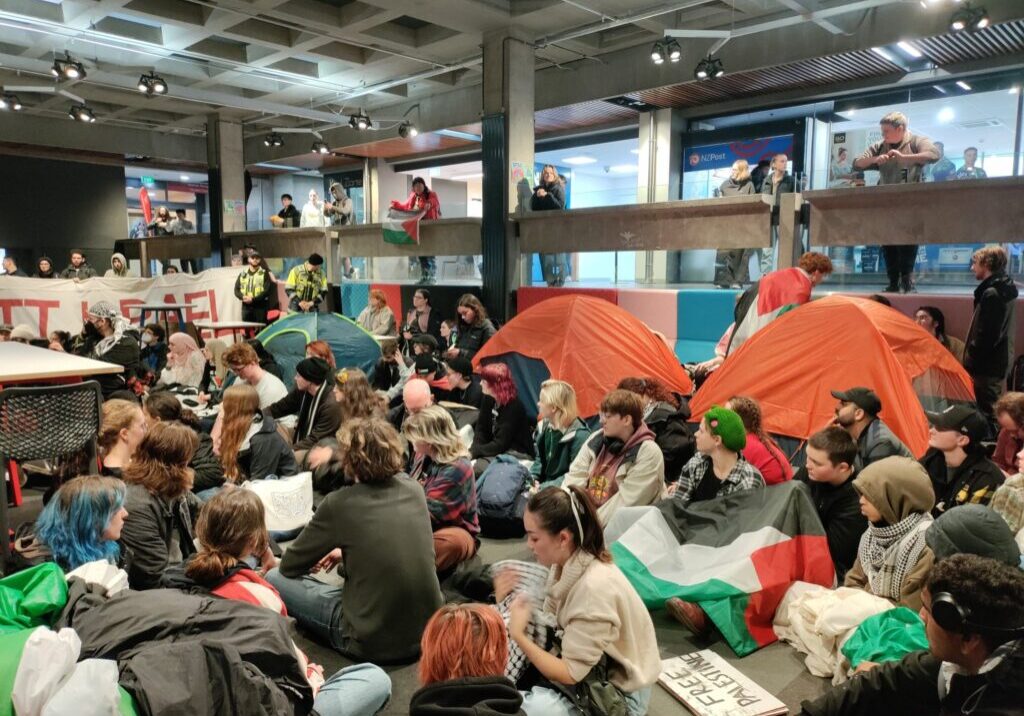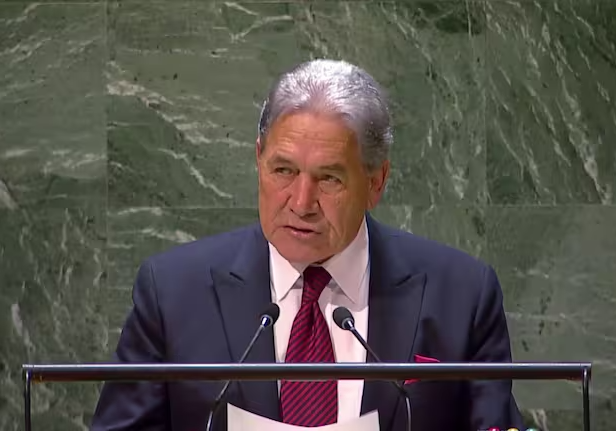Australia/Israel Review
AIR New Zealand: Keyed Up In Wellington
Nov 24, 2008 | Miriam Bell
Given the consistency of the pre-election polls, the results of the New Zealand election on Nov. 8 would have come as a shock to few Kiwis – John Key’s National party handily defeated the Labour party, led by Helen Clark, the prime minister for the past (almost) 9 years.
What has been surprising for many people is the speed with which Key has acted subsequently, first to pull together a National-led coalition government, and then to announce a new cabinet. The inclusiveness of both his coalition – which is made up of the ACT party, the Maori party and the United Future party – and the resulting cabinet, announced on Nov. 17, has also been a pleasant surprise for many Kiwis.
However, among the population at large, there remains a lingering degree of uncertainty about what exactly the new government will do in a whole range of policy areas. For New Zealand’s Jewish community, that uncertainty has manifested itself particularly in curiosity about the country’s future relationship with Israel (particularly in terms of trade), aspects of community relations and immigration.
John Barnett, the immediate past president of the Auckland Hebrew Congregation, says he thinks it is positive that Key has moved quickly and decisively; “He has put together what looks like a decent government and cabinet, and I think that both his speed and his inclusiveness will be good for New Zealand.”
The new National-led government will probably mean a better relationship with Israel, he continues: “People like Murray McCully [the new minister of foreign affairs], Tim Groser [new minister of trade and associate minister of foreign affairs], and Jonathon Coleman [new minister of immigration] are all friendly to Israel.”
Barnett also says that he thinks Pansy Wong, who will be New Zealand’s first Asian cabinet minister, was a sensible choice for minister of ethnic affairs. He notes that of the government’s new minor coalition partners, the free market-oriented ACT party has traditionally had a particularly positive relationship with Israel.
NZ-Israel Trade Association Chief Executive Officer Mike Nathan agrees broadly with Barnett, and adds that he expects that the new National-led government is likely to be more pro-peace and less interested in the deploring of Israeli acts of self-defence. “I think we are less likely to see National snuggle up to non-aligned countries, as Clark’s government did, and I think a National government will not necessarily follow the pattern of voting against Israel on United Nations resolutions,” he says.
He also predicts an interest in Israel’s success in the hi-tech and agri-tech industries.
Nathan says that a number of National MPs – including new Minister of Defence Wayne Mapp and new Attorney-General Chris Finlayson – have visited Israel. “This should not only increase the government’s appreciation of Israel’s geographic and political situation, but should lead to greater cognisance of Jewish community interests,” he said.
“The new government has brought fresh opportunities for improving the relationship between Israel and New Zealand,” agrees David Zwartz, acting CEO of INZIC (Israel New Zealand Innovative Connections) in Wellington. “While some of the previous Labour-led government’s coolness towards Israel was likely to warm up in time, a more business-oriented National government brings closer business and trade links higher up the agenda. We will also press on with political and cultural exchanges.”
NZ Jewish Chronicle Editor Mike Regan also thinks it will be interesting to observe the new government’s stance in voting at the United Nations, given that under the last few governments, both Labour and National, New Zealand’s record has not favoured Israel.
He says he does not expect any major changes in policy or direction in relation to Israel but says that, when he interviewed John Key last year, Key spoke warmly of Israel and his sympathy for Israelis under severe strain.
“However, he quickly followed that by saying the Palestinians were also deserving of sympathy and understanding. In other words, he was preaching a similar, even-handed approach to the Labour-led government, but with slightly more empathy toward Israel.”
Regan says he suspects that the realities of trade, along with the penchant of the Ministry of Foreign Affairs to favour New Zealand’s major trading partners – which include Arab and Muslim countries – may continue to determine government policy towards Israel.
John McCormick, who is the Hawkes Bay division president of NZ Friends of Israel, also predicts no major changes in policy towards Israel – even though he believes most MPs in the National party are friendly towards, and interested in, Israel.
He thinks the key to any significant change will be increased efforts to make sure the pro-Israel case is heard, “Our side of the fence… has to be more organised because people need to know what is going on and when” with respect to UN votes and other key events.
McCormick says there are a number of MPs whom he knows are hostile to Israel, including one who, if not antisemitic, is at the least a “very rude bugger” when discussing the subject.
However, to balance this out, he says that some of the new intake of ministers are “very good friends of Israel”. He cites new Attorney-General Chris Finlayson as an example. Not only has Finlayson been to Israel twice in recent years, but he also attended the Israeli Embassy’s 60th Anniversary celebration and has helped to arrange a number of cultural exchanges between New Zealand and Israel.
NZ Jewish Council President Geoff Levy says it is still far too early to be able to say anything definitive about the new government and that, in fact, both the government and the cabinet really remain a work-in-progress.
“One of the things that has been said, by Murray McCully, is that he doesn’t see many changes to the foreign affairs policy, because there are not many differences between National and Labour policy in that area. I think we’ll have to wait for him to settle into his new role before anything further can be said.”
Levy believes the new government’s focus will be on the current global economic crisis, and that is as it should be. “I want them to focus on the financial situation. I think foreign affairs will be put on the backburner for the time being, but I do hope that, in terms of trade, there will be new ventures. I hope that New Zealand will learn from other countries that have had similar issues but have become strong economies.”
Meanwhile, one aspect of the new National-led government and cabinet is the Maori party. While Barnett says he does not think there is antisemitism in the party, both co-leader Tariana Turia and MP Hone Harawira have been criticised in the past for comments that have upset members of the Jewish community.
In 2000, Turia (who was then a Labour party minister) was reprimanded by the party leader, Helen Clark, for comparing the Holocaust to the sufferings of the Maori people. Turia later apologised for her comments, but got into more trouble when she said she agreed with a Waitangi Tribunal report’s use of the word “holocaust” in relation to what happened to Taranaki Maori.
In 2006, Harawira referred to “the Jews” instead of Israel in a debate on the Lebanon war. According to parliament’s official transcript, Harawira said that “acts of murder by the Jews should be stopped”. However, in a statement later released by the Maori party, Harawira instead said: “The Maori Party endorses the prime minister’s statement that acts of murder by the Israelis be stopped.”
Levy sums up the approach of much of the community leadership: “We just don’t know what most of the new ministers, and the new government, will be like. Obviously, we have high hopes for them, but we’ll just have to wait and see.”
Tags: Australasia, New Zealand






